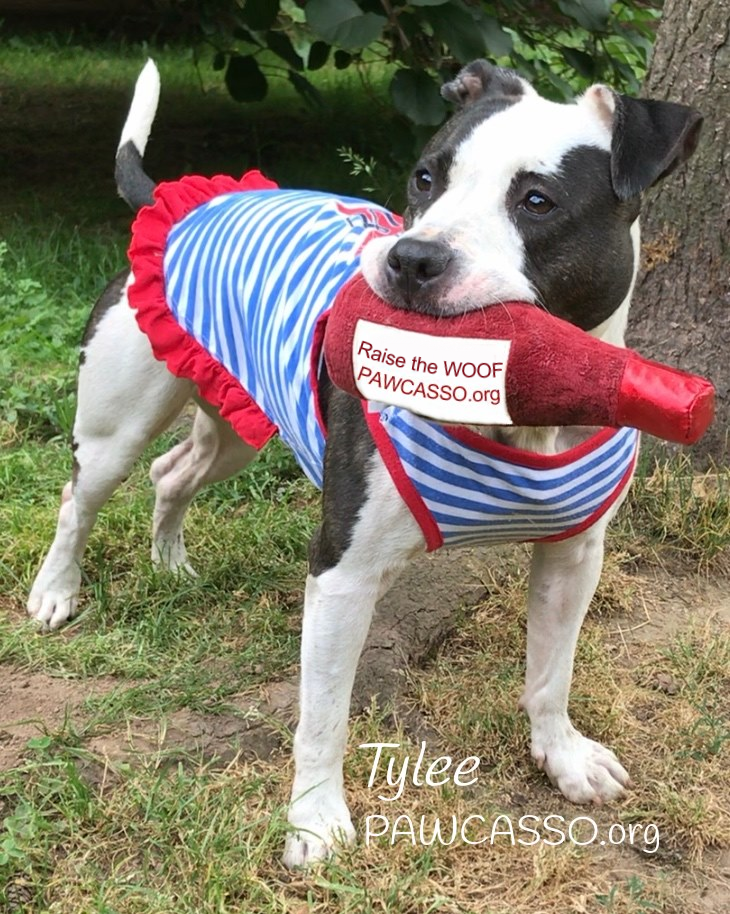Canine Dysfunctional Behavior (Autism in dogs)
Can dogs have Autism? Patricia Jordan, DVM recently wrote an article about Autism in Dogs for Dogs Naturally Magazine in February this year. In human, autism is defined as a condition that impacts the nervous system, and symptoms and signs can vary, but range from having difficulty being in social situations, having communication issues, or exhibiting obsessive interests and repetitive behaviors.
Dogs can also exhibit similar behaviors, but in veterinary medicine, this is referred to as “canine dysfunctional behavior,” rather than autism. Autism in dogs, or canine dysfunctional behavior, is an idiopathic condition, which means that the cause is unknown. What we do know is that it’s congenital, and that dogs exhibiting dysfunctional behaviors are born with the condition. Studies suggest that dogs with canine dysfunctional behavior lack certain mirror neurons in their brains which are believed to help dogs learn social norms.
These neurons are called mirror neurons because they help young dogs “mirror” older dogs and other canines to learn how to function in a social setting. Without these neurons, a dog will be unable to develop the skills needed to build social relationships.
D Jardim-Messeder · 2017
In the 1960’s, veterinarians noted autism-like symptoms in dogs. As autism research and education advances, veterinary professionals and dog owners are also discovering that dogs can react and experience the world in a way similar to people with autism.
- As with autistic children, dogs with autism feel everything differently too, and can be hyper-sensitive to any kind of stimuli, such as a gentle pet on the head, which can cause your dog to respond with a reaction of pain, aggression or fear.
Tylee, a staffordshire pit bull mix, displays all the classic symptoms. She is completely disconnected from everything outside her own little world. Loud noises, out of ordinary routines, unusual types of dressing/appearances upset her easily.
When Tylee was just eight weeks old, she was just like any other puppy; a soft, squirming bundle of fur with a sparkle in her eyes. At that time her future seemed bright. However, over time the sparkle in her eyes diminished, and her abnormal behavior started showing when she was about 16 weeks old. The challenges seemed to increase significantly right after she turned 6 months old.

Tylee used to go on puppy outings, but one day during her routine daily walk in the city, she suddenly freaked out and managed to slip away from her handler for a brief moment. That incident made us realize that Tylee couldn’t be walked in public for her own safety. The stress from cars passing by, delivery men walking around the sidewalk delivering packages, and all other colorful elements around her were just too much for her to handle.
Tylee’s personal guardian still takes her for car rides on the weekends to see the outside “normal” world, but she must travel in a crate with a nice, soft bed for comfort and her own safety; not directly exposed to any unfamiliar things. She will have to be placed in a dog carrier, whenever she needs to get an annual exam at the VET, since it is too risky to have her walk on the leash in an unfamiliar setting.
Tylee finds her biggest joy in life playing with her ball. She is very good at catching the ball in the air; either on the way up or down. She will leap joyfully, over and over again and catch it almost every time.
Despite her detachment, Tylee is a very smart dog that learned to understand specific cues much faster than most dogs. She responds very well with rewards. We have been able to prevent anything bad from happening to her by understanding what things may trigger her to react, and maintain a set routine at all times.
Although she is quite smart, and loves to play fetch, her future looks bleak with no home and a challenging road ahead. There are only three people Tylee allows to be around her and only because they have been around her since she was born. She won’t let other volunteers handle her or come close to her.
Sad update: Tylee Pawcasso unexpectedly passed away on Wednesday (4/5/2023 at 12:50PM). She collapsed from heart attack during play fetch with her favorite people in the yard. The other 9 Pawcasso dogs desperately need a much safer place to settle down; a sanctuary setting far away from the city would be an ideal place to build a small sanctuary for these dogs.

The next five months are critical & will be the deciding factor if we can continue being the guardians for the Pawcasso dogs or we have to admit we are failing them and find another group that may be willing to invest the time & money in them; without just putting them in forever kennels till the day they die. The chance to find any other group who can accept these dogs’ flaws & give them the undivided attention as we do, is not that good, since the Pawcasso dogs are NOT adoptable & have a variety of behavioral issues.
Please join us on this fight together; we really need you to be the ambassadors for these Pawcasso dogs & expand the force.
Donate here to support Pawcasso Raise the WOOF project.



